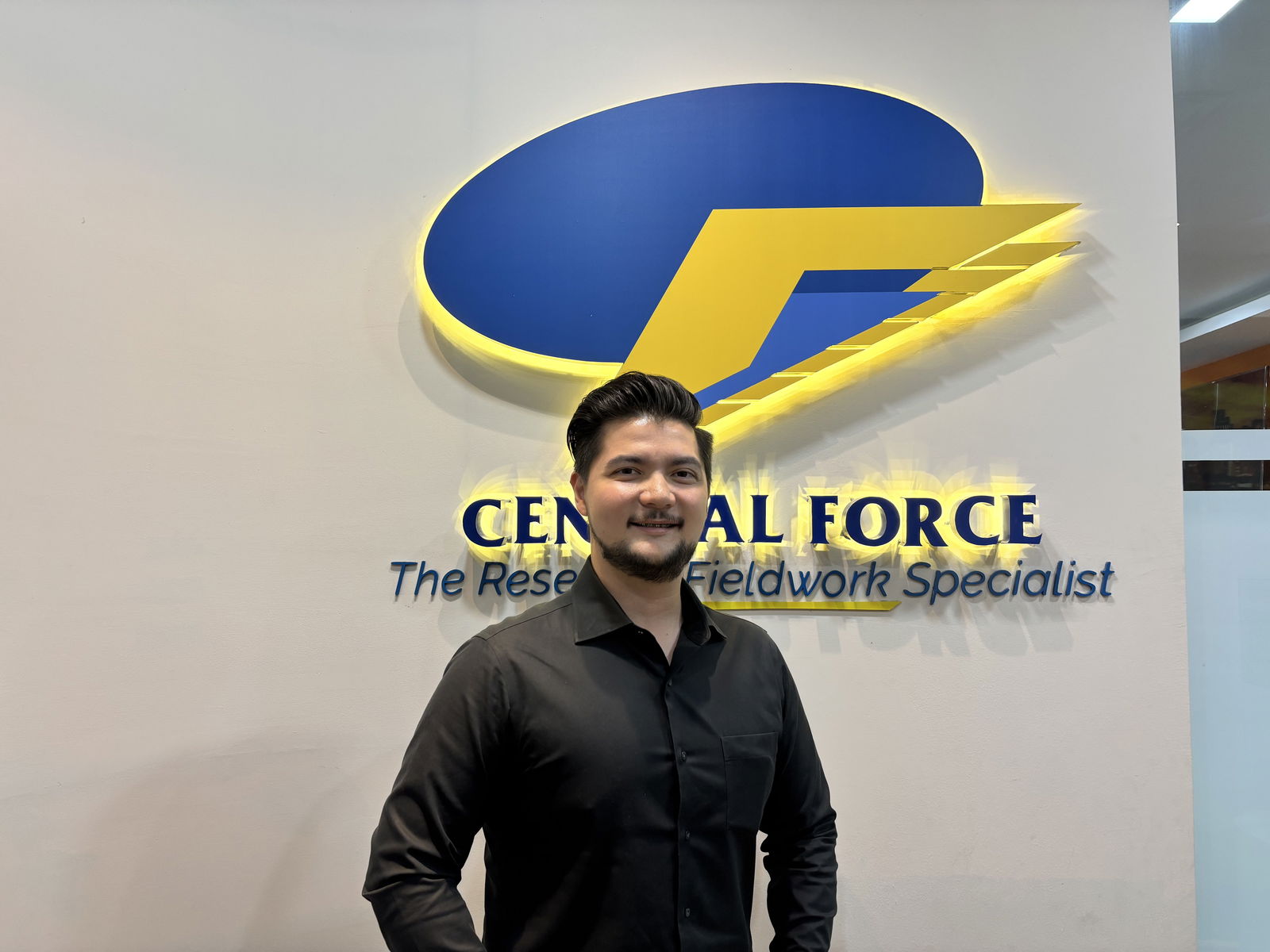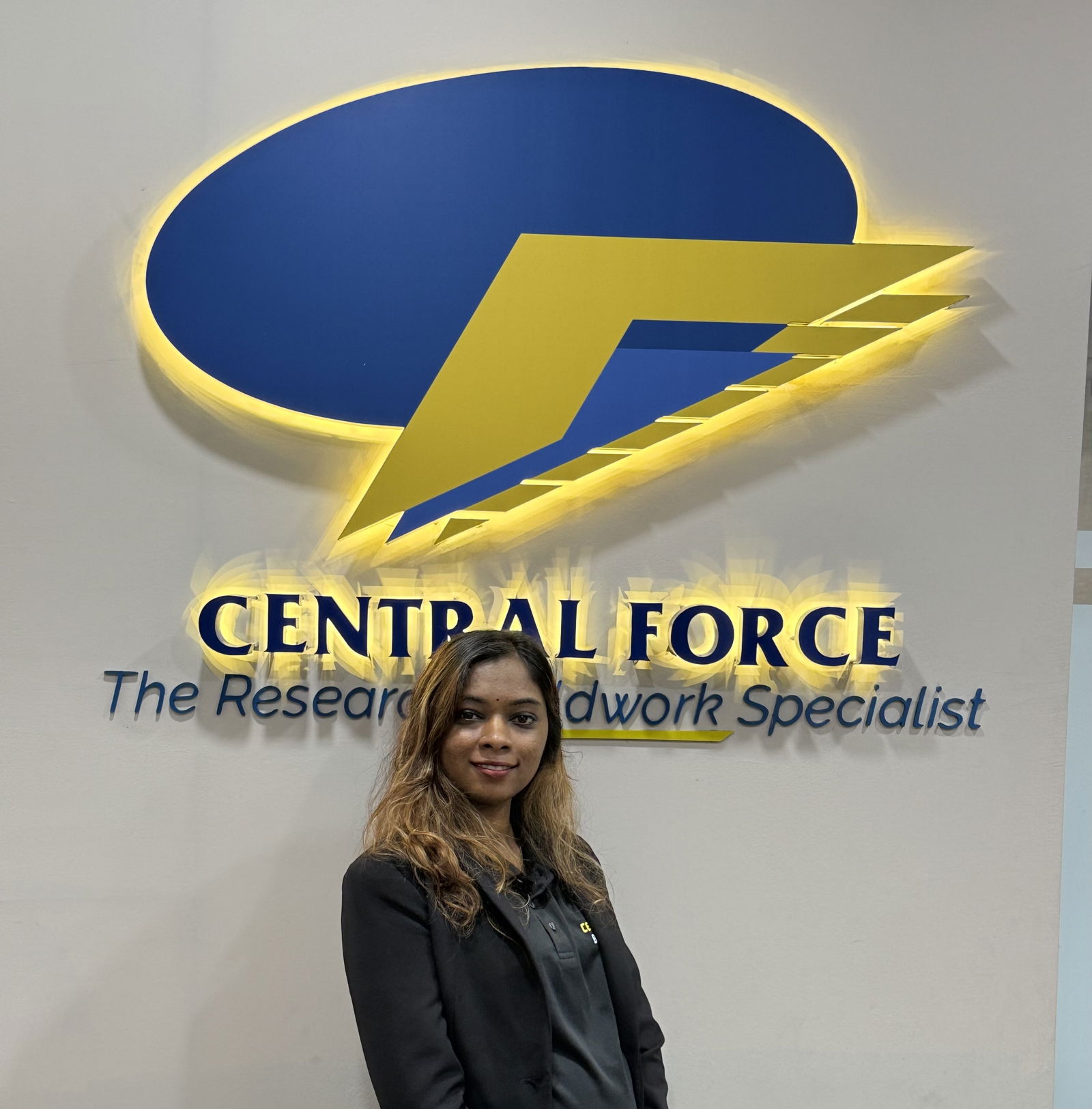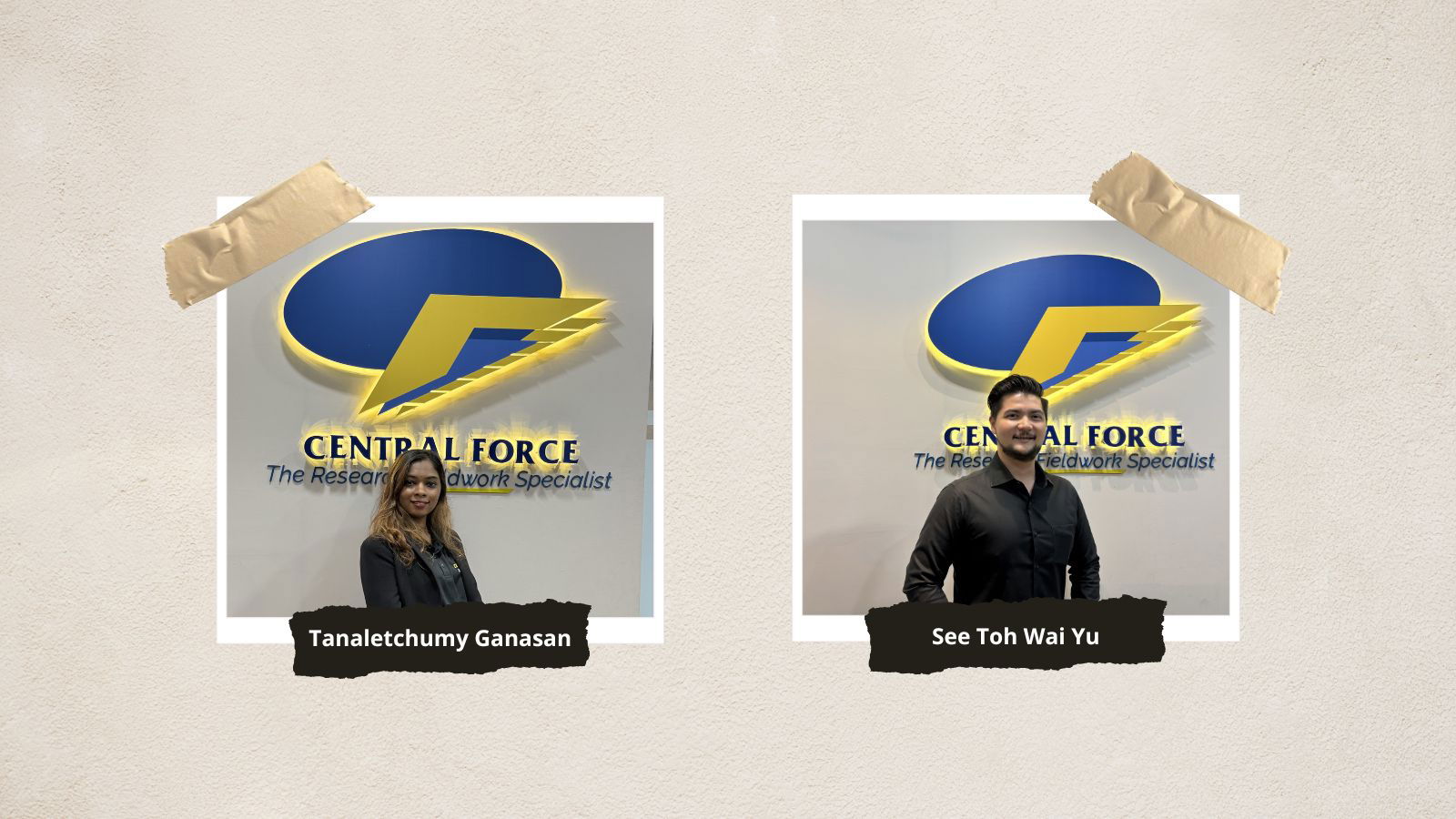share on
From flexible hours to care packages, Central Force 's CEO and HR lead share how putting care into everyday decisions has helped retain employees and build trust across the organisation.
In an environment where SMEs often struggle to compete with MNCs and overseas roles, Malaysia-based research firm Central Force has taken a different path. In 2024, the company recorded a 96.7% employee retention rate.
According to See Toh Wai Yu, Chief Executive Officer at Central Force, this figure was not driven by a specific target but came as a natural result of the company's culture.
“Retention rate has never been a KPI to monitor for us because the majority of our team are with us for the long haul,” he tells Umairah Nasir
Central Force has implemented a range of people-first practices including flexible working hours, shift-swapping arrangements, work-from-home options, and targeted learning programmes. The team also conducts regular check-ins and keeps communication channels open to ensure employees feel supported.
Tanaletchumy Ganasan, Senior HR Executive at Central Force shares that these measures have been particularly meaningful for working parents and caregivers, who benefit from greater flexibility and reduced stress.
The company’s leadership and HR team work closely to ensure that people remain at the centre of decision-making, with policies shaped by both business needs and employee feedback.
Leading with empathy: How Central Force’s CEO builds culture through care and trust

Q As an SME leader, what do you see as the biggest reason Malaysian talent is leaving for MNCs or overseas roles, and how can SMEs turn this around?
I believe many Malaysian talents are drawn to MNCs or overseas roles because they often perceive those opportunities as offering better career progression, higher salaries and sometimes just simple bragging rights. These are areas where SMEs sometimes struggle due to limited resources. However, SMEs do hold unique advantages such as a closer, more personal work environment where you often have direct communication with leadership, without the bureaucracy.
And because it's usually a flatter, leaner organisation, it also means that employees often get to learn and be exposed to multiple facets of the business, giving them a better understanding of the various steps and processes that’s needed in running the business as compared to a more dedicated and specialized role within larger organisations. These skills and opportunities are critical in today’s fast-evolving market where being nimble and quick to adapt is key most of the time.
In my personal opinion, to retain talent, SMEs should emphasise these strengths and cultivate a culture where employees feel genuinely valued, supported, and empowered. At Central Force, for example, we place strong emphasis on flexibility, continuous talent development and open communication, but most importantly, we always place care at the forefront of how we manage our team.
Remembering that we are all human, and we each have difficulties in some aspects of our lives, be it health, family, or coping with stress. Sending a personal care package containing Panadol, cough syrup, and vitamin C to a colleague's home when we find out that they are on medical leave, for example. This approach allows us to compete not only on salary but also on the quality of employees’ overall work life.
Q Central Force achieved a 96.7% retention rate in 2024. What leadership decisions or cultural shifts played the biggest role in achieving that?
To be honest, I did not even notice we had such a high retention rate in 2024 until I had a glance at the numbers recently. Retention rate has never been a KPI to monitor for us because the majority of our team are with us for the long haul. The high retention rate was instead a by-product of our efforts taken in intentionally embedding our core values of ethics, quality and care into every aspect of our operations. We prioritised listening closely to employees’ needs and introduced flexible arrangements such as work-from-home options, staggered working hours, and shift swapping to help employees balance their work and personal lives better.
We also promoted open communication through regular feedback sessions, employee satisfaction surveys, and pulse checks, which helped build trust and a strong sense of belonging. Even as a lean organisation, we made targeted investments in the teams’ learning and development programmes to support their growth within the company whilst taking account of their roles in the company.
Together, these actions, centered on listening and caring, created an environment where our people feel respected, motivated and connected, naturally encouraging longer tenure and better retention rate.
Q How would you describe your leadership style today, and how has empathy and wellbeing shaped your approach to business and people over the years?
I’d describe my leadership style as servant leadership: I trust my people to out-perform me in their own specialties while I focus on removing obstacles, clarifying the vision, and keeping us all aligned from a bird’s-eye view. My job is to offer support, provide upskilling opportunities, and empower the team so the organisation can move forward together.
I try my best to be empathetic and inclusive with a deep focus on understanding the individual needs of my team. I firmly believe that when leaders genuinely care for the wellbeing of their people, it not only builds a base for loyalty but also drives overall business success. Over the years, I have learnt that supporting employees through flexibility, actively listening to their challenges, and adapting policies to accommodate their realities encourages a healthier and more motivated workforce.
I am also a strong believer in life-long learning, and that there is always something that we can learn from anyone, regardless of his/her position or seniority. It is through this that I constantly emphasise the importance of listening to the viewpoint of others, the need for consistent upskilling, and the opportunity to voice and raise concerns. This approach promotes open communication and collaboration, creating a safe environment where employees feel comfortable being themselves and growing professionally.
In many ways, I’m convinced that “care” is not just a personal value but a powerful strategic business asset.
Putting people first: How HR drives flexibility, inclusion and continuous learning

Q Flexible work and employee wellbeing are often seen as hard to implement in SMEs. How did you make this work at Central Force, and what feedback have you received from employees?
Implementing flexible work arrangements within an SME environment was certainly a challenge but it began with our management team genuinely listening to the needs of our employees. Based on that understanding, we introduced a variety of options from work-from-home setups to staggered hours, shift swapping and modified roles especially for functions where continuous operation is essential. Clear communication and well-defined guidelines ensured that the flexibility offered did not disrupt operations and it turns out that the response from our employees has been overwhelmingly positive.
Many have shared how these flexible options have significantly reduced their stress levels and improved their work-life balance. Working parents and caregivers, in particular, have expressed deep gratitude for being able to attend medical appointments, children’s parent-teacher meetings or manage family responsibilities without added pressure.
Overall, flexible work has proven not only feasible but also a critical factor in boosting employee morale and productivity.
Q Your team has won awards for your initiatives towards women empowerment. What were some of the key HR policies behind this success, especially around supporting working parents and fair hiring?
Our success in winning the Women in the Workforce award stems from a purposeful commitment to fairness and support. We maintain an unbiased recruitment and performance review process that focuses solely on merit and potential ensuring equal opportunities for all. Beyond hiring and performance management, we provide flexible arrangements such as work-from-home options, modified duties and shift swapping to help working mothers and caregivers balance their responsibilities.
We conduct regular wellbeing check-ins via pulse surveys, friends at work programme and maintain open communication channels that help us identify and address any challenges faced by our female employees. Career development opportunities including training and knowledge-sharing sessions are actively promoted to promote continuous growth. Collectively, these policies nurture an inclusive environment where women feel respected, supported and empowered to succeed.
Q How do you support career growth and learning for employees in a lean organisation, where upward mobility might be limited?
Recognising that upward mobility can be limited in a lean organisational setup, we focus on horizontal development and continuous learning. We organise weekly in-house training and coaching sessions known as our Project 30 initiative powered by our partner, Exelient Consulting to improve departmental efficiency and sharpen employee skillsets.
Additionally, employees are encouraged to pursue relevant external training whether for job knowledge, technical skills or soft skills and share their learnings through knowledge-sharing sessions helping to build collective expertise. We also facilitate cross-functional projects that broaden skills and expose staff to diverse roles and challenges. On top of it, our performance reviews recognise and reward learning and adaptability keeping the employees engaged and growing professionally. This strategy helps our people feel supported, valued and motivated to upskill themselves.
Working in sync: How leadership and HR align to keep people at the centre
Tana: Our collaboration is founded on open, ongoing communication and shared values of ethics, quality and care. The CEO and I regularly discuss employee feedback, business priorities and common sentiments or triggers within the workforce to align our strategies effectively. We work closely to develop policies that strike a balance between operational demands and the wellbeing of our people.
By reviewing our post-initiative and engagement data together, we can respond quickly and thoughtfully to any emerging issues. This steady partnership ensures that people remain central in our business decisions and that Management consistently reflects a genuine commitment to our workforce by combining strategic vision with operational insight.
Wai Yu: It also greatly helps that I have a team who is always ready to take on new challenges. Many of the initiatives that we have today often come from a random spark in my head, and I tend to get overly excited to test or execute it. The general process will then be for me to call Tana and relevant team members into the room and just brainstorm it through with me.
The team lets me know if there’s merit behind the idea, and what would be the potential bottlenecks or challenges if we execute it. Most of the time, the team would shed new perspectives that I haven’t thought about, but the best part of it all, is that neither of us would reject an idea until we’ve explored all possible angles.
Q To end on a light note — If your team were the subject of a market research study, what do you think the top three findings would be?
Tana: If a market research study were conducted on our team, I believe it would find that flexibility and work-life balance top the list of what our people value most. It would also reveal a strong appreciation for approachable, open leadership that makes them feel like part of a family. And, knowing we work in research, I’m sure the study would highlight our team’s great sense of humour especially how often they jokingly ask, "Are you sure the data won’t surprise us this time?" which always puts a smile on our face because in research, there’s always something unexpected around the corner.
Wai Yu: I don’t have to guess what the top findings would be because I’ve had external stakeholders willingly share what they thought about Central Force and the team that’s running it!
Here’s one of it: Most Central Force staff tend to gain some weight after working here for a couple of years. And that’s not a surprise when you consider all the food that everyone just shares with everyone, all the time. Went for a holiday, brings back foreign snacks as souvenirs. Found something interesting in the supermarket, buys an extra pack to share with everyone. Did a little home cooking today, packs a little extra and goes round with a fork asking everyone to give it a taste.
Q As a final thought, working in research, you’re used to asking all the questions but what’s one question your team always seems to ask you that makes you laugh?
As for the question the team always asks, I have to agree with Tana. In our line of work, every research project is a humbling experience. Even after interviewing and surveying thousands of people, we constantly uncover insights that challenge our assumptions.
It’s a powerful reminder of why it’s so important to truly listen to your audience, rather than relying on blind confidence or our own biased perceptions.
Images / provided
share on


